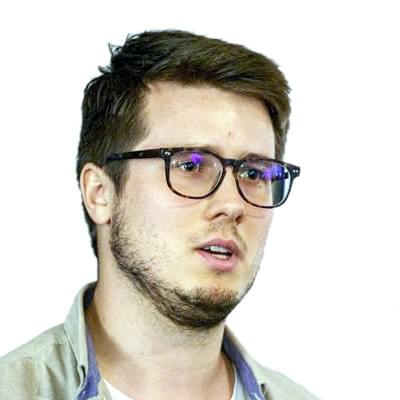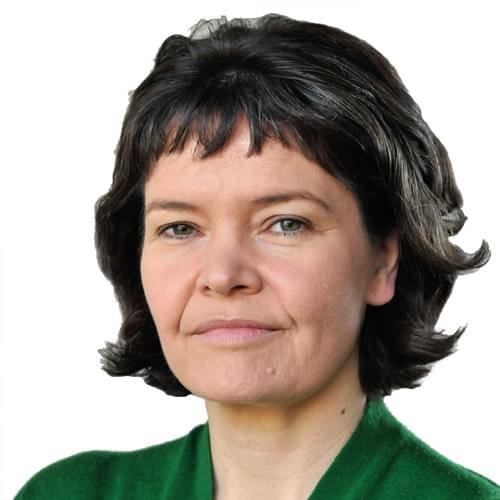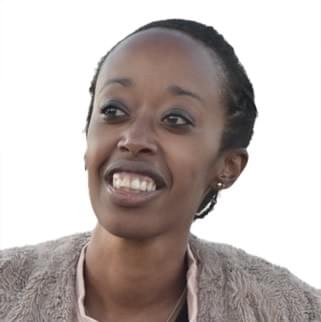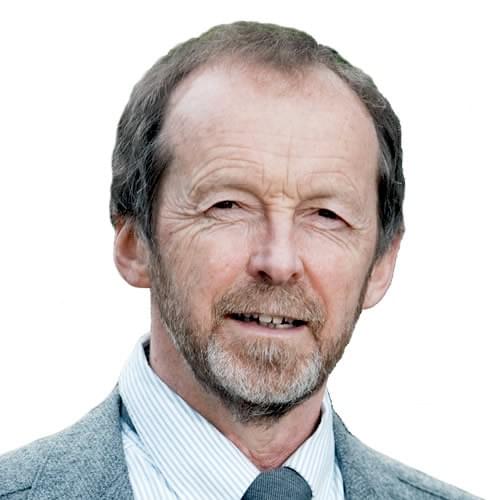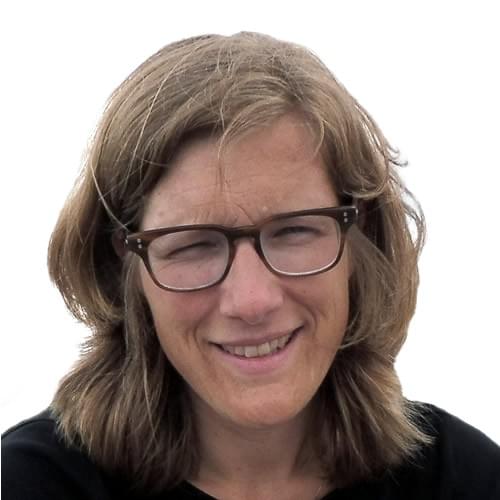
KEYNOTES
Experts and researchers from all around the world

KEYNOTE
GUIA BIANCHI
Guia Bianchi is the lead researcher and author of GreenComp, the European sustainability competence framework for lifelong learning. She works as a researcher at the Joint Research Centre of the European Commission, where she conducts research on sustainability education, competences skills, and innovation policy. She has a PhD in sustainability management from Sant’Anna School and is a Fulbright alumna. In her past, she accrued working experience at the OECD on entrepreneurship and local development. In 2022, she still finds it weird when she has to justify why she does not eat meat.

KEYNOTE
SAM DE MUIJNCK
Sam de Muijnck is chief economist at the Dutch independent think tank Our New Economy. Together with Joris Tieleman, he published a book on how to reform economics education named ‘Economy Studies: A Guide to Rethinking Economics Education’ (www.economystudies.com). Earlier Sam was the chair of the Future Generations Think Tank as well as the chair of the Dutch branch of the international student movement Rethinking Economics, where he also made a website about economics education to inform the debate (www.economicseducation.org). He followed his undergraduate economics and honours program (cum laude) at the Radboud University in Nijmegen, interdisciplinary research master (cum laude) at the University of Amsterdam, and his internship with the economic advisors of the Ministry of Finance of the Netherlands. Besides his economics activities, Sam is a breakdance teacher (www.damnfresh.com) and hip-hop artist (www.samenfalko.nl).

KEYNOTE
VIVEK GILANI
Vivek Gilani is a Lifetime Ashoka Fellow and an Environmental Engineer who co-founded and works at cBalance, an employee-owned collective practicing the principles of sociocracy and with a max-to-min salary ratio of 1:4. cBalance is engaged in the praxis of apprehending climate injustice and addressing our collective climate emergency through resisting the enclosure of the knowledge-commons and subverting the accumulation, commodification and competition logic of predatory capitalism. As Director of cBalance he has been appointed for ‘greening’ the Indian Premier League (IPL) and the Shanghai World Expo by the UNEP, appointed by CII to report India’s Greenhouse emissions from Industry to the United Nations. He is the Director of the Fairconditioning Program, which seeks to make sustainable cooling and responding to heat stress endured by the most marginalized communities in India a non-negotiable value, and not a value addition, of the greenwashed 'built-space economy' in India. He also works on holding elected representatives of Mumbai and Pune accountable for the promises they make by checking their performance, and letting them know they're being watched, through the efforts of the Informed Voter Project (mumbaivotes.com).

KEYNOTE
LIESBETH HUYBRECHTS
Liesbeth Huybrechts is an Associate Professor in the Spatial Capacity Building research group, Arck, Hasselt University. Her research focuses on exploring the role of participatory design in the careful shaping of sustainable and spatial change, the role of the "political" (respect for diversity of human and non-human actors), capacity building and digital and physical tools in that process. This focus translates into educational projects (Live projects and Masterclass Participation Tools) publications, (e.g. Co-Design Public Realm, 2017; the Politics of Co-Design, 2020; Re-framing the Politics of Design, 2022); conferences (Participatory Design, Politics and Democracy, Hasselt University, 2018) and projects on participatory transitions of e.g. mobility infrastructure (e.g. North-South Limburg) and water (e.g. Waterrijk Waterschei).

KEYNOTE
KATE RAWORTH
Prof. Kate Raworth is a renegade economist who published her bestselling Doughnut Economics: Seven Ways to Think Like a 21st-Century Economist in 2017. Her book tries to solve the apparent dilemma in the much contested SDG number 8: Decent work and economic growth. According to Raworth, it does not matter whether the economy grows or not, as long as it provides “a safe and just place for humanity” (Raworth, 2017).
She has experience in different fields. Her professional career has taken her from working with micro-entrepreneurs to co-authoring the Human Development Report for UNDP in New York. At the moment she is Senior Associate at Oxford University’s Environmental Change Institute and also Professor of Practice at Amsterdam University of Applied Sciences.
Extras:
Website: www.kateraworth.com

KEYNOTE
GUSTAVO RODRIGUEZ
Gustavo Rodriguez is a PhD Candidate at the Leuphana University Lüneburg within the research group "Processes of SustainabilityTransformation" funded by the Robert Bosch Foundation. His doctoral project focuses on learning processes in the sustainable transformation of the textile-fashion industry in Mexico. Gustavo's background is interdisciplinary: He holds a bachelor's degree in chemical engineering and a master's degree in environmental sciences with a focus on Education for Sustainable Development. Currently, he is carrying out teaching activities at Leuphana University while also performing as an external consultant in a sustainable fashion consultancy company in Mexico. His research interests are diverse, such as transformative learning, competencies for sustainability, learning evaluation, curriculum design, transitions for sustainability, innovation and entrepreneurship, as well as sustainability applied to the fashion industry.

KEYNOTE
OLIVIA RUTAZIBWA
Dr. Olivia Umurerwa Rutazibwa is a Belgian/Rwandan International Relations scholar and former journalist. She is Assistant Professor in Human Rights and Politics in the Department of Sociology at the London School of Economics and Political Science (LSE), UK and Senior Research Fellow of the Johannesburg Institute of Advanced Studies (JIAS), South Africa.
Her research and teaching focuses on ways to decolonize (international) solidarity. Building on epistemic Blackness as methodology, she turns to recovering and reconnecting philosophies and practices of dignity and repair and retreat in the postcolony (e.g. autonomous recovery in Somaliland, agaciro in Rwanda and Black Power in the US, Tricontinentalism and the political thought of Thomas Sankara) to theorize solidarity anticolonially.

KEYNOTE
STEPHEN STERLING
Dr. Stephen Sterling is Emeritus Professor of Sustainability Education at the Sustainable Earth Institute, University of Plymouth, UK. He has worked in environmental and sustainability education in the academic and NGO fields nationally and internationally for over four decades, including as a consultant and advisor on UNESCO’S Education for Sustainable Development (ESD) programmes, and as co-chair of the UNESCO-Japan Prize on ESD International Jury. He is a Distinguished Fellow of the Schumacher Institute, a Senior Fellow of the International Association of Universities (IAU) and a Fellow of the Environmental Association for Universities and Colleges (EAUC). Widely published, his research interest is in ecological thinking, systemic change, and transformative learning at individual and institutional scales to help meet the challenge of accelerating the educational response to the sustainability agenda and crisis.
Extras:
Website: www.sustainableeducation.co.uk

KEYNOTE
LILIAN TRECHSEL
Dr. Lilian Julia Trechsel is Head of "Transformative Education and Science" Impact Area at the Centre for Development and Environment (CDE), University of Bern, Switzerland. She further coordinates the inter-university doctoral-level International Graduate School (IGS) North-South programme. Her research focuses on questions of transformative education and the integration of sustainable development in higher education institutions and beyond. She did her doctorate in Geography and Sustainable Development, researching the potential of transformative spaces in higher education institutions and beyond with a special focus on students’ learning experiences. She is highly committed to creating the conditions for teaching and learning that make education for sustainable development (ESD) possible at the tertiary level. She leads the ESD-mandate of the Vice-Rectorate at the University of Bern, enabling herself and her team to implement activities, coordinate, and support engagement for sustainable development.

KEYNOTE
RENATE WESSELINK
As a researcher in the field of learning sciences I am particular interested in learning of individuals and teams, beyond trainings and courses, and the extent to which their (informal) learning contributes to (business) organizations’ sustainable development. As the world faces increasingly challenging and complex societal problems, such as malnutrition, poverty and environmental degradation, (business) organizations have been called upon to address these problems. However, these societal challenges cannot be dealt with by just (top-down) improving or upgrading existing practices within organizations. My main ambition is to show that by embracing individuals’ leadership capacities and teams’ creativity within and across organizations, the capacity to transform as (business) organization, sector or society will increase. And consequently, this will accelerate sustainable development. Contexts of my studies are predominantly (business) organizations that want to improve their sustainable development, but also educational organizations (e.g. vocational schools, universities) or clusters of organizations representing the four helices (industry, government, academia and society). I always try to translate my research findings into (higher) education and ask myself the question, what do we expect from a future employee who wants or has to contribute to sustainable development? I have the ambition to make these students aware of their own innovative potential (they are the future leaders and team members) and their role and responsibility to be part of the change.

MODERATOR
EDDY VAN HEMELRIJCK
After an international business career in sales and management for medium and large sized corporations, Eddy moved into education, training and consulting, mainly in sustainability, personal development, and intercultural management. Eddy is CEO of MAROR NV, lecturer at Karel de Grote University of Applied Sciences and Arts, co-founder of Rethinking Economics Antwerp, and co-founder of Emagine Life, a meeting place in Antwerp to help create a better future for all. He has a heart for people and nature.
ORGANIZERS & CONTACT
The HIGHER EDUCATION SUMMIT 2022 is organized by
Hasselt University and the COPERNICUS Alliance
with support of Vrije Universiteit Brussel, werecircle
and Duurzaam Educatiepunt.If you have any questions, please contact hes@uhasselt.be

